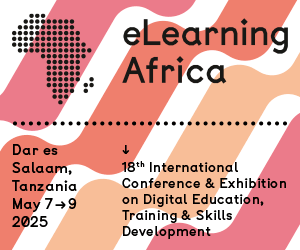Simulations: Augmented Virtuality Gets Real!
 Milano (I), September 2012 - Training needs more and more tools and applications that are able to adapt, not only to the user, but also to the context. Both can change rapidly, and being able to design an instrument that follows these changes in a short timeframe represents an investment that can save time and resources. Furthermore, using standard methods that are detached from users' personal experiences and from the working context is not only obsolete but also ineffective.
Milano (I), September 2012 - Training needs more and more tools and applications that are able to adapt, not only to the user, but also to the context. Both can change rapidly, and being able to design an instrument that follows these changes in a short timeframe represents an investment that can save time and resources. Furthermore, using standard methods that are detached from users' personal experiences and from the working context is not only obsolete but also ineffective.
Contrary to what one might think, face-to-face training often impedes learners' active participation as, even in a role-play exercise. For example, people are often afraid of being judged, and this fear of judgment or assessment creates an obstacle both to generating experiences of value on the one hand and giving true and clear feedback on the other. Also, classroom training is the same for every participant!
This aspect is also true for the classical eLearning modules: the same content and same level of complexity for everyone. Boring, somewhat ineffective, and far from representing an interactive experience that can quickly and effectively be re-conducted from the virtual to the real environment!
Having a training tool that can adapt itself to every learner, even in a complex context, and that can be re-adapted quickly to a changing reality is the next generation answer to today's training needs! Virtuality needs to be augmented with these two dimensions. This is the aim of the ImREAL FP7 project, where business simulations in a multicultural setting (such as job interviews or formal / informal meetings with foreign colleagues) are under design and construction. These simulations are intended to raise intercultural awareness and are designed for self-regulated learning: Any simulation step can be chosen at any time by learners, with users also being made aware of which competencies are being trained.
The level of complexity is set at the beginning based on a user profile, and it is adapted during run time whilst interacting with the simulation based on performance. An affective metacognitive scaffolding service supports learning activities and reflection. This way of learning and building up experience does not follow any prescribed training path but is personalized and flexible based on the user and the context.
Describing reality with the use of activity theory, the instructional designer who is setting up the contents can easily and quickly change these to map the latest situation and add appropriate supporting materials such as videos or any other source coming from web 2.0.
During the last few months, some experts' meetings and interviews with training specialists were carried out by the imaginary firm, one of the project partners, and simulation developers in order to collect comments about the prototype of the simulator and about how to use such a tool inside a business or as an add-on to a training program. What has been reported so far derives from some comments collected during these meetings, starting from the theories that form the basis on which the simulator is being developed.










